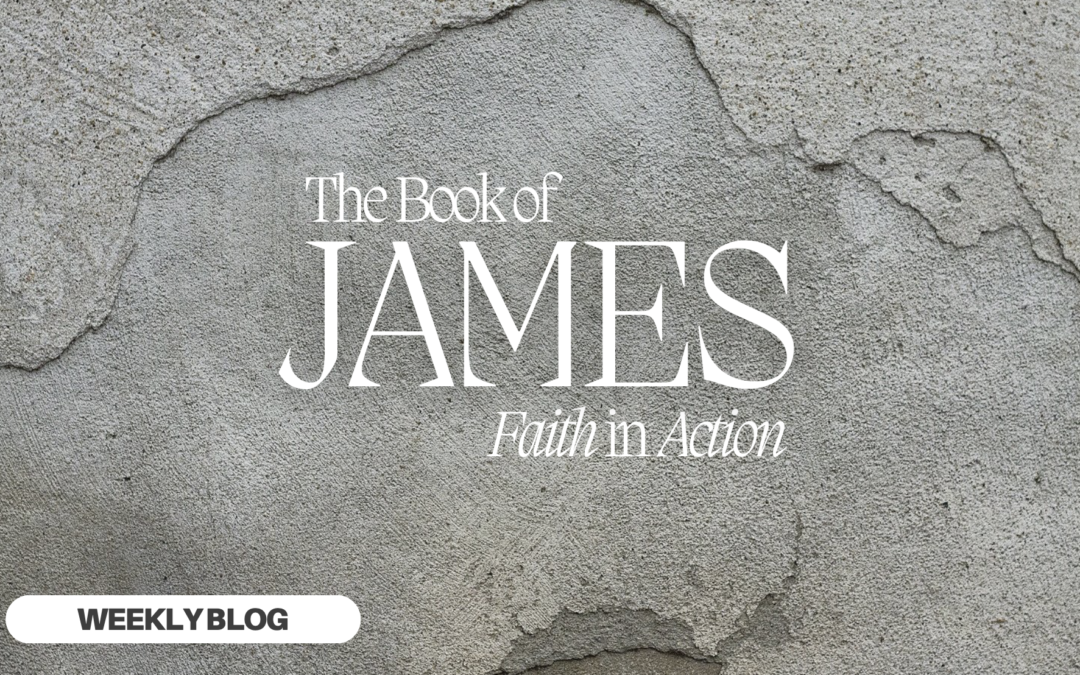JAMES—Week 6
James 3:13-18
Have you ever wrestled with an important life decision? Perhaps you are wrestling with one now? At some point or another, we all find ourselves in the position of making an important decision, and we often don’t have clarity on the best path forward. We want to make a decision that is wise and God-honoring, but sometimes it is difficult to discern what that is. Sometimes the decision that seems best or most lucrative from an earthly perspective just doesn’t bring peace our hearts. Sometimes even a decision that would seem to be God-honoring doesn’t bring peace. Over the last couple of years, God has repeatedly led me to this week’s passage when I have faced a difficult decision or when I’ve questioned God for closing a door or denying a dream. Through this season I have learned that then it comes to understanding and discerning the will of God, there’s no better passage in all of Scripture than James 3:13-18. In this passage, James outlines a process for Biblical decision-making:
- Godly wisdom begins with obedience (vs. 13). It is foolish for us to ask God for wisdom in one area of our lives while ignoring what He tells us to do in other areas of our lives. As a lawyer, one of the most frustrating aspects of my profession is when a client asks my advice, then ignores that advice, then comes to me in anger and frustration when things don’t go as he planned. Can you imagine how God feels? Throughout human history, God has repeatedly and lovingly provided us with His roadmap to a restored relationship with Him and with others. Yet, time and again, we pursue our own way and ignore His commands, and we become bitter and frustrated when our lives don’t work out as we’d hoped. Do you want wisdom? Start with humble obedience to God’s commands.
- Godly wisdom requires proper motives (vss. 14-16). One of the chief issues with which we must come to grips is that we are by nature selfishly motivated. We feel we know what’s best for us, and we desire more than anything else to be in-charge. This selfishly motivated ambition pollutes our decision-making and damages our relationships. Accordingly, it is imperative that we take time to examine our motives in any decision we make. As Ignatius of Loyola put it, “It is necessary to make ourselves indifferent to all created things . . . so that, on our part, we want not health rather than sickness, riches rather than poverty, honor rather than dishonor, long rather than short life, and so in all the rest; desiring and choosing only what is most conducive for us to the end for which we were created.” In other words, wise decisions are rooted in pure motives—motives that are reflective of a soul that has found its contentment and value in Christ (Phil. 4:10-13).
- Godly wisdom produces good fruit (vss. 17-18). When we look at the characteristics of Godly wisdom found in these verses, they should seem familiar. In fact, they basically parallel the fruit of the Spirit as outlined by Paul in Gal. 5. This only makes sense as the Holy Spirit is the source of Godly wisdom. As we move into the last step of making wise decisions, a key factor should be the fruit of that decision. Is it reasonable? Does it bring peace both to my heart and to the hearts of those whom it will impact? Will the decision merely change a relationship, or will it destroy it? The list goes on and on. The bottom line is this: all decisions (even the difficult ones) will produce good fruit for those impacted by that decision if the decision is made employing Godly wisdom.
Questions:
- Think through the important decisions in your life. Can you think of a decision that may have not involved Godly wisdom? Can you think of a decision that was based on Godly wisdom? What were some of the differences between those decisions and their impacts?
- Why are what Paul calls contentment and Ignatius calls spiritual indifference so important in our decision making? How do we cultivate this attitude in our lives?
- Why is obedience such an important precursor to wise decision-making? What does obedience foster in our lives?






